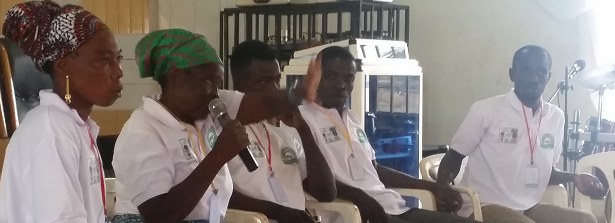The fruits of knowledge co-creation in multi-stakeholder platforms

Food security, climate change and environmental degradation are global challenges that require joint action by multiple organizations. That is why several donors stimulate multi-stakeholder platforms (MSPs). What is known about these platforms? Do they achieve what they aim for? Do agriculture- and food-related MSPs contribute to food security, sustainable development and the position of smallholders? We dived into the literature and found positive results but also important limitations.
Like several other donors, the Dutch government and the Dutch Research Council (NWO) promote MSPs with the idea that different actors should jointly look for new solutions to solve complex issues. “Knowledge brokering” and “knowledge co-creation” are proposed as magic bullets to find new solutions. However, the policy to stimulate knowledge co-creation in MSPs is based on assumptions rather than clear evidence. NWO-WOTRO set up the Science for Using Research (SURe) call to initiate research into knowledge brokering with the aim being to contribute to the knowledge base on this topic.
Under this call, we conducted an extensive systematic literature review looking into the results of agriculture- and food-related MSPs in sub-Saharan Africa. A systematic literature review uses a clear and well-defined scope and systematic search strategy and analysis. It aims to be as complete as possible and collect all relevant evidence of a specific research topic, taking the quality of scientific articles into consideration. Our search started with scanning more than 2000 articles and ended with 43 scientific articles and 48 “grey” literature studies which we analyzed. This article focuses on the results, while we also looked into the process side of MSPs, including the constraining and enabling factors.
The main findings on the results of MSPs in a nutshell:
- The literature captures several examples of positive outputs, outcomes and impacts resulting from learning and knowledge co-creation in MSPs. Examples include larger harvests and higher income for farmers, changes in policy and institutions, and environmentally more sustainable agricultural practices.
- However, there are also important limitations. Most MSPs, for example, are organized at district level, with relatively little attention for scaling up. This implies that constraints to improvements originating at higher scale levels, like national policies, are unlikely to be resolved. The sustainability of MSPs is another issue of concern, as many MSPs are set up and facilitated with donor funding of limited duration. Little research has been done on the survival of MSPs after project closure, but studies show that many of them discontinue when donor support comes to an end.
- Researchers fulfilled multiple roles in the MSPs studied. They not only studied and reported on the MSPs, but often also initiated them and played a facilitating role in knowledge co-creation. This role was acknowledged as being important, but also led to confusion about the multiple hats researchers were wearing. This calls for clarity about these roles.
- There are also limitations related to the evidence base of MSPs. For example, “failures” are hardly reported, and it is not clear whether MSPs are indeed the most effective way to achieve certain goals. The effectiveness of MSPs can therefore not be taken for granted, which is why it is important to systematically document and analyze their functioning and results.
Do you want to know more?
The article is freely accessible:
van Ewijk, E. & Ros-Tonen, M.A.F. (2021). The fruits of knowledge co-creation in agriculture and food-related multi-stakeholder platforms in sub-Saharan Africa – A systematic literature review. Agricultural Systems 186, 102949. https://www.sciencedirect.com/science/article/pii/S0308521X20308106
The article is part of the ‘Putting heads together‘ project funded by NWO-WOTRO, under the Science for Using Research (SURe) call. #NWO #WOTRO #SURe #AIS





